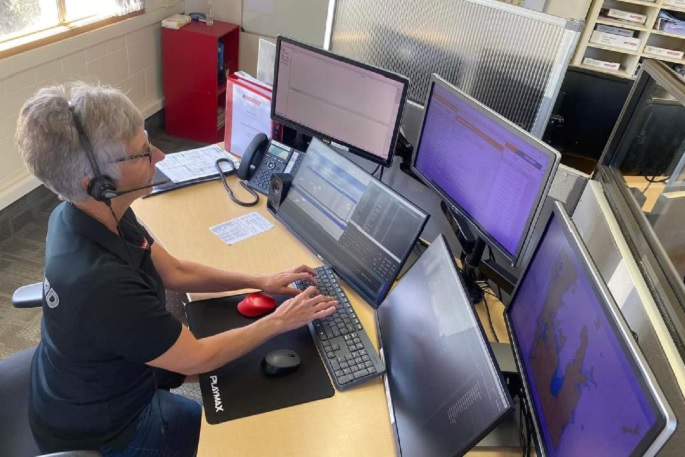They are the voice of comfort, reassurance and hope in a crisis.
They are the Coastguard Communications East radio operators – the crucial link between boaties and the brave Coastguard rescue crews, which go to sea in all weathers and circumstances to save those in peril.
Without the radio operators rescues wouldn't happen, lives could be lost.
But it's not always life and death. The radio operators are also the first and main point of call for boaties just having difficulties – whether it be a flat battery or they've run out of gas.
They are Coastguard Communications East voices like Jill ‘Mindy' Sweeney.
'I joined Coastguard because I wanted to save lives,” says Mindy.
She was manning the communications centre on a cold, blustery and wet holiday morning this week.
Only 13 boaties had reported in that morning. But it could be hundreds during summer, because the centre covers the coastline from the top of the Coromandel, round East Cape to Hawke's Bay, from Kaikoura to Dunedin as well as the southern lakes. A big area, a lot of boats.
For few hours a day some Bay of Plenty coastguard units run their own service for their own boating communities.
'I want to help others avoid losing a family member. And I am proud to be part of a national team saving lives at sea.”
Mindy's voice is just one of 20 manning the radio at the communication centre in Nikau Crescent at the Mount.
Not everyone is going to call in with an emergency or a problem.
'Most will call to give a trip report, say where they're headed and how long they might be; and, then later, advise they are safely home. All happy days.”
Now they're holding a recruitment drive – they need many more voices in readiness for next summer – people with communication skills, common sense and a desire to help others.
'Everything else can be learnt,” says Mindy. So they're holding an open day on Saturday, June 17, from 10am-2pm.
If you have a voice for radio and want to be part of a team saving lives, meet the team at Coastguard Communications East, look around the unit base, and hear from volunteers about their experience and what it entails.
As a volunteer radio operator you'll be part of the national communications team, the main point of contact for boaties and rescue crews.
All training is provided free and Coastguard NZ qualifications – VHF radio operator and day skipper can be obtained free. No experience is needed.
Call Jill (Mindy) on 021 743 815 to book a time to visit.
When The Sun is talking to Jill she's monitoring TV images of the Bowentown and Whakatane bars.
'I don't know a bar around New Zealand that hasn't claimed a life. They are very unpredictable and change, so that's a lot of our work.”
Then sometimes, not often, it's the big emergency.
'It depends on how they cope with stress. Sometimes we might get the awful: ‘Help, help! We're sinking and then nothing else.”
That's when the calm, collected, trained-up volunteer kicks into gear.
”We need to determine exactly where they are, how many on board and their problem. That would get a rescue underway.”
The skills required of the prospective radio operator is to be the reassuring voice for those in need – conveying hope, that there is help on the way, but at the same time getting the vital information. Successful rescues depend on good, accurate information.
Volunteer radio operators do an average one shift a week of three-four hours. Regular shifts means keeping skills up-to-date. Rosters are published at least two months ahead so people can plan. Operators tend to keep a regular slot, then put a hand up for extras if there are gaps.
And there are words of comfort for would-be volunteer radio operators – no-one is left in a position of manning a radio without support.



0 comments
Leave a Comment
You must be logged in to make a comment.